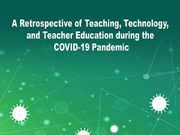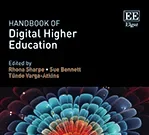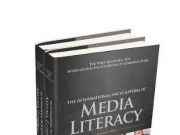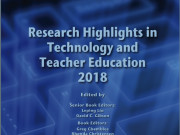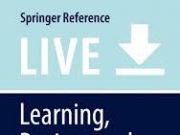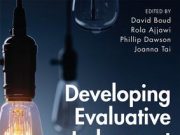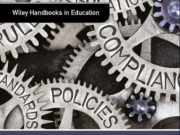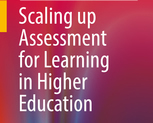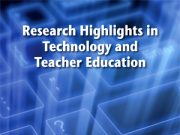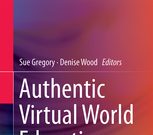Book Chapter
Moving beyond folk pedagogies towards hybrid and blended practices
In this chapter we revisit and add to Bruner’s folk pedagogical frame, pointing to implications for practice, including the need to design for learning that considers the nature of delivery with and through technologies.
Educational design and productive failure: stories of creative risk taking
This chapter focuses on the creative risk taking involved in educational design and is an exciting collaboration between DER member Prof Michael Henderson and...
Digital literacy in higher education
Neil Selwyn & Luci Pangrazio have a new chapter published in the Wiley/Blackwell 'International Encyclopedia of Media Literacy'. providing an overview of the digital media that are present in contemporary higher education contexts and the media literacy issues that surround them.
Chapter in Research Highlights in Technology and Teacher Education
Mike Phillips has a new book chapter with Judi Harris in Research Highlights in Technology and Teacher Education published by the Association for the Advancement...
Technology and feedback design
This chapter provides a synthesis of research into how technology can support effective feedback. The results of a systematic literature search into technology and feedback are then presented, structured around the parties involved in feedback: students, their peers, educators, and computers.
Designing for technology-enabled dialogic feedback
In this book chapter DER members Henderson, Phillips and Ryan propose a design for technology-enabled dialogical feedback processes, with the goal of strengthening student evaluative judgement.
Technology as a focus of education policy
Neil Selwyn has a book chapter featured in the new Wiley Handbook of Education Policy. Neil’s chapter - ‘Technology as a Focus of Education Policy’ – explores how policymakers around the world responded to increased pressure to integrate digital technologies into school systems. It argues that has grown to be a complicated area of education that is entwined with reconfigurations of public policymaking along globalized and privatized lines.
How Does Technology Enable Scaling Up Assessment for Learning?
LNM members Michael Henderson and Phill Dawson have written a chapter on the potential of scaling up assessment for learning through the use of technology designs.
New publication in Research Highlights in Technology and Teacher Education 2017
LNM's Mike Phillips is lead author on a new publication in Research Highlights in Technology and Teacher Education 2017 published by the Association for the Advancement...
Cognitive Engagement in Virtual Worlds Language Learning
New chapter from LNM members exploring the types of cognition experienced by higher education students during lessons in Second Life.


